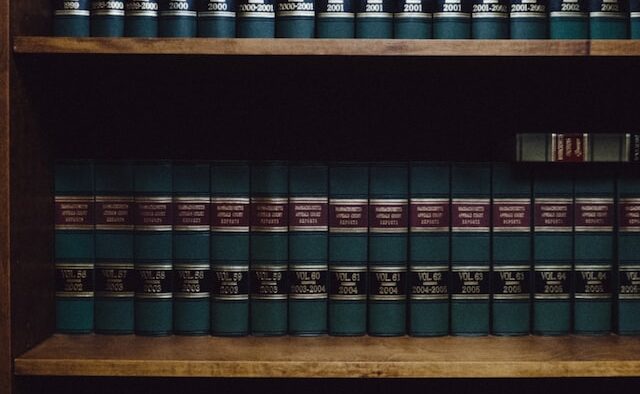The Legality of Cultural Appropriation
Share

Image Credits: @nasser on Unsplash (Unsplash License)
Despite decades of activists attempting to stop the use of other cultures by those outside said culture, the now well-known idea of cultural appropriation is only morally objectionable, as there is no established legal route that can be taken to prevent it. This has not stopped some from trying to use the courts as a way to protect their cultural practices from being profited on. However, many of these attempts have failed, especially when it comes to sports teams and their mascots or names, given their somewhat sentimental nature for many fans. By examining the history of using intellectual property law to protest against the appropriation of native culture, it becomes clear that trying to make the act illegal is not likely to happen any time soon.
Background
Cultural appropriation is commonly defined as the “taking of intellectual property, cultural expressions or artefacts, history, and ways of knowledge” by a person or entity from outside that cultural community. This becomes a problem when a dominant or majority culture attempts to make use of these things from a minority group, ultimately devaluing it.
The legality of cultural appropriation is closely tied to its connection to intellectual property, which is defined under U.S. law as “any product of the human intellect that the law protects from unauthorized use by others.” This means that the government is able to provide motivation to creators so they can “benefit the public by regulating [their] use of such work”. Essentially, if the government can protect creators, it is likely that they will continue to produce work that can then be enjoyed by the public. If creators had no protections over their original creations, it would be much less likely that they would create work, because nothing they would make would be able to be exclusively made and profited on by only them.
The Constitution protects this kind of expression under the Intellectual Property Clause in Article I, Section 8, which states that, “The Congress shall have Power To prompt the progress of Science and useful Arts by securing for limited Times to Authors and Inventors the exclusive Right to their respective Writings and Discoveries.”
One of the main legal methods through which those who disagree with cultural appropriation have objected to the practice is the disparagement clause of the Lanham Act. Enacted in 1946, this piece of legislation does not allow for registered trademarks to “consist of or comprise immoral or scandalous matter” that would be “shocking to the sense of truth, decency, or propriety, giving offense to the conscience or moral feelings, calling out for condemnation, disgraceful, offensive, disreputable, or vulgar “ for “a substantial composite of the general public.”
Sports and Cultural Appropriation
American sports teams and organizations have been some of the largest perpetrators in the cultural appropriation of Native Americans since long before the term itself was coined in the 1980s. This action in such a public forum can have widespread implications for native peoples all across the country, especially among those most committed fans. In fact, according to a study by the journal of Race and Social Problems, sports viewers who are exposed to mascots representing Native Americans actually report more prejudice against them. It is for this reason that some groups have attempted to use the aforementioned disparagement clause of the Lanham Act to cancel the trademarks registered by teams with offensive mascots, which has been particularly evident in the case of the NFL’s Washington Football Team, formerly the “Washington Redskins.”
Pro. Football, Inc. v. Blackhorse (2015)
In the case of Pro. Football, Inc. v. Blackhorse (2015), USPTO cancelled the trademark on the name “Washington Redskins”, citing the reason that the name is disparaging toward Native Americans. At the time of the trademark cancellation, the Washington based football team’s logo and name promoted the appropriation of Native American culture, including clothing, jewelry, artwork, and ceremonies by fans, supporters, or even members of the team themselves. The ACLU represented the football team under the claim that the elements of the disparagement clause being used violated the First Amendment’s right to freedom of expression.
Ultimately, the Supreme Court claimed that “Native Americans do not own the term redskin, nor any of the cartoonish depictions of their peoples, and cannot control their use any more than they can control the use of ‘Indian’ elements in any other cultural or commercial sphere.” Because of this, USPTO lost the case, leaving in place the name until the team made the ultimate decision to change it.
Pro. Football, Inc. v. Harjo (2005)
Another earlier case, Pro. Football, Inc. v. Harjo (2005), occurred in which the name “Washington Redskins” was also called upon to be changed. A group of seven Native Americans petitioned for the cancellation of 6 trademarks used by the team; they used the same disparagement clause to argue that the name should not be permitted by the NFL or Congress. Again, the trademarks protected the name in association with “goods and services related to its football team, including merchandise and entertainment services.”
The court did recognize that “the term ‘redskin’ as used by Washington’s football team had disparaged Native Americans from at least 1967 onward.” However, the results were also the same; the petitioners did not win and the trademarks stood.
The Current Washington Football Team
Today, the team has officially changed its name and logo out of respect for Native American communities who have called for its removal. The change did not occur until just two years ago, in 2020, in the wake of massive, nationwide protests that followed the Minneapolis police’s killing of George Floyd. After these protests sparked significant backlash for the name, the team announced that they would be conducting a “thorough review.” They were also pressured to make the change by a large list of sponsors who threatened to pull their support, including FedEx, Pepsi, Bank of America, Nike, and Amazon.
Therefore, the change was not a result of a direct lawsuit or the application of the Lanham Act’s disparagement clause, but rather because of public, especially native, and sponsors’ disapproval of the logo and name.
Matal v. Tam (2017)
After the two formerly explained cases had already been decided, the Supreme Court actually overturned the Lanham Act and disparagement clause. In the case of Matal v. Tam (2017), Chief Justice Kennedy, supported by a majority of the Court, affirmed that the clause “specifically singled out a subset of messages that the government determined to be offensive and prohibits them, which was plainly unconstitutional viewpoint discrimination.” In other words, it is now unconstitutional to use the disparagement clause to combat cultural appropriation.
The Future of Criminalizing Cultural Appropriation
Even though legal action against perpetrators of cultural appropriation, especially in sports, has been largely disappointing to many, the United Nations has taken steps toward possibly changing this. Namely, the UN has sought to make cultural appropriation directly illegal, rather than forcing petitioners to go through backchannels of copyright and trademark law. In 2017, the UN met with the intention to “obligate states to create effective criminal and civil enforcement procedures to recognize and prevent the non-consensual taking and illegitimate possession, sale and export of traditional cultural expressions.” This, however, has been a long ongoing battle and is not set to be resolved anytime soon.
Ultimately, for advocates of codifying the ability to pursue action against cultural appropriation into law, there is currently little chance that any change will occur soon. Although the UN meeting shows some promise, the US government has resisted creating a legal path to restricting the practice. Therefore, it appears the best avenue for activists today is going directly to the source of the cultural appropriation, or their audiences and donors, to seek change.


Want to get involved?
Connect with us! Connect with us!